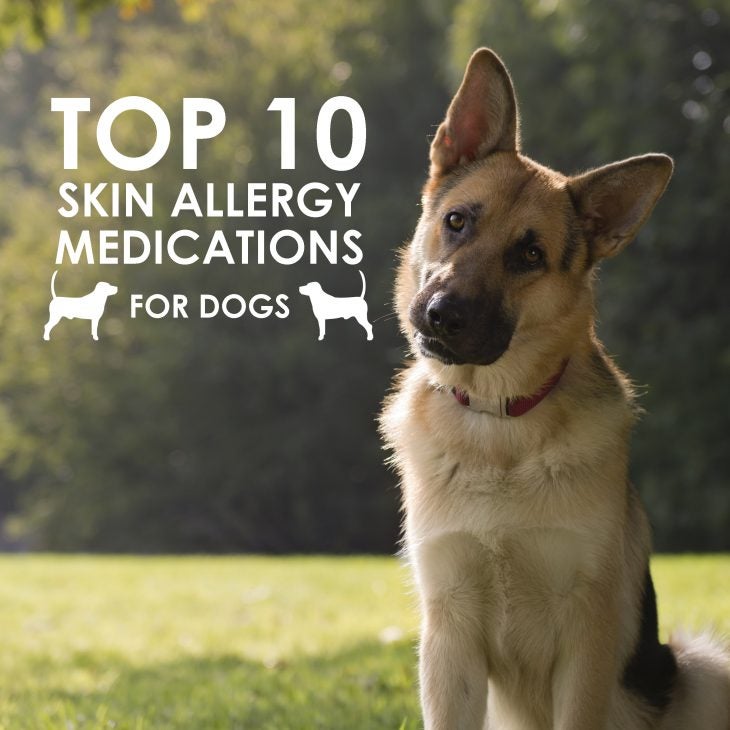Great Suggestions For Choosing Pet Wellbeing
Great Suggestions For Choosing Pet Wellbeing
Blog Article
Omega-3 Fatty Acids: How Can They Help Joint Health?
Omega-3 fatty acids, EPA eicosapentaenoic, and DHA docosahexaenoic acids are important to maintain and improve joint health in dogs and cat. This is what they do:
Anti-inflammatory properties
Reduce Inflammation
Function: Omega-3 fatty acids have significant anti-inflammatory properties. They reduce the production of pro-inflammatory chemicals, eicosanoids and cytokines. These are molecules that contribute to inflammation.
Omega-3s can reduce pain and swelling that comes with arthritis by decreasing the inflammation in the joints. This can improve their overall quality of life by enhancing the level of comfort for pets.
Joint Lubrication and Health
Better joint Lubrication
Function: The omega-3 fatty acid helps to maintain the health of the synovial, the fluid that helps to lubricate our joints.
Benefits of lubrication that is better: Less friction means less wear and tear for cartilage. This is particularly beneficial to pets that have joint issues or might develop one.
Cartilage Protection and Repair
Cartilage Protection:
Function: Omega-3s reduce the activity of enzymes that breakdown cartilage.
Benefits: Protecting cartilage against degradation helps maintain joint integrity and slow the progression of joint diseases like osteoarthritis.
Immune System Support
Immune System Regulation:
Function: Omega-3 fats modulate the immune response, which promotes a balanced inflammation response.
Benefits An immune system that is well-regulated is better equipped to handle joint health problems. It prevents excessive inflammation and joint injuries.
Improved Mobility and Comfort
Better Mobility
Omega-3s perform a variety of functions. They can reduce inflammation and also help maintain joint structure. This allows pets to move more freely.
Benefits A lot of pets, especially older pets or those with arthritis experience reduced pain and increased mobility. This can lead to an active and happier life.
Additional Health Benefits
Overall Health
Function Omega-3 fat acids also contribute to the health of the coat, skin and the cardiovascular system.
Benefits of a healthier pet: A healthy pet will be more active, and have healthier joints.
Use and Considerations
Dosage and Administration The amount of Omega-3s to administer will depend on your pet's weight, size and condition. Follow the guidelines on the label, or those given by your veterinarian.
Omega-3s sources: Supplements containing high-quality, fish oil are a common source of EPA and DHA. Selecting products that are specifically designed for animals is vital to ensuring safety and efficacy.
Omega-3 supplements tend to be safe, however certain pets could have digestive issues or fishy odors. Start with a lower dosage and gradually increasing it to minimize adverse negative effects.
Conclusion
Omega-3 fatty acids can be beneficial for joint health and wellness in dogs as well as cats. Their ability to decrease inflammation, improve joint lubrication and protect cartilage and support the immune system all help improve joint function and less discomfort. Regular supplements lead to improved mobility and an active, healthy life for your pet. Follow the recommended dogs supplements recommendations for site recommendations including pet heart spet hops supplements, pet supplements for pets with dry skin, pet supplements for pets with muscle spasms, pet supplements for pets with fear of grooming tools, petz park, pet eyebright supplements, pet dental health, pet licorice supplements and more.
Coconut Oil Helps With Allergies In Dogs And Cats.
Coconut oil is a natural remedy that helps manage skin allergies in dogs as well as cats due to its moisturizing, anti-inflammatory and healing qualities. Coconut oil is a natural remedy which can assist pets with allergies.
Moisturizing Properties
Skin Hydration
Coconut oil easily penetrates and is a fantastic moisturizer.
Benefits: Helps moisturise dry skin that is flaky, itchy and dry. This relieves itching, while also promoting an effective skin barrier. This is especially beneficial for animals suffering from allergies to skin like dermatitis.
Anti-inflammatory action
Reduce inflammation
Function: Coconut oil contains lauric acid, a chemical that has anti-inflammatory properties.
Benefits The application of coconut oil on inflamed areas can help reduce swelling, redness, and discomfort associated with skin allergies. This can offer significant relief to pets suffering from allergic reactions.
Antimicrobial Activity
Beware of Infections
Function: Coconut oil contains antimicrobial properties like caprylic and lauric acids, which aid in fighting bacteria, viruses, fungi, and other microorganisms.
Coconut oil is a great source of benefits. It is a great treatment to prevent secondary skin infections, that are result of scratching or allergies. This can help maintain skin health, and prevent future complications.
Healing and Soothing
Promoting Healing
The function: Coconut oil supports the natural healing process of the skin.
Benefits The product soothes and heals small cuts, abrasions and hot spots which can be result of excessive scratching. It can speed up the healing process for damaged skin caused by allergies.
Barrier Protection
Enhancing Skin Barrier:
Coconut oil helps to strengthen the natural barrier of skin.
Benefits: Having a stronger skin barrier can reduce allergic reactions as well as the risk of infection.
Dietary Supplementation
Internal Benefits
Coconut oil can be consumed in the form of a dietary complement.
It improves skin health when consumed. Its anti-inflammatory and antimicrobial properties could aid in reducing inflammation throughout the body and boost the immune system of pets, potentially reducing the incidence of skin allergies.
Use and considerations
Topical application Application of a small amount of coconut oil onto the areas of your skin that are affected. It is crucial to massage gently to allow it to be absorbent. It can be applied once or two times daily depending on the degree of the ailment.
Coconut oil, when added to your pet's food is an oral supplement. The dosage for pets is typically 1 teaspoon coconut oil for every 10 lbs.
Coconut Oil: Use virgin coconut oil of high quality organic and free of preservatives.
Check for reactions - Although coconut oil in general is safe, keep watch over your pet to see if they experience any adverse reactions. This could include vomiting, diarrhea or skin irritations when the oil has been applied to the skin.
Conclusion
Coconut oil is an effective natural solution for treating allergies to the skin in dogs and cats. Its moisturizing and anti-inflammatory antimicrobial, and healing properties help soothe and protect the skin, decrease itching and inflammation, as well as promote overall skin health. Regularly applying coconut oil, applied topically and as a food supplement, can give substantial relief from the symptoms of allergies and enhance the quality of life for pets suffering from skin allergies. View the top petz park for website recommendations including pet nutrition supplements, pet supplements for pets with thunderstorm phobia, pet supplements for rescue pets, pet chamomile supplements, petbarn, pet supplements for pets with worms, pet supplements for pets with fear of vet visits, pet supplements for pets with worms and more.
Apple Cider Vinegar Is Effective In Treating Yeast Infections In Cats As Well As Dogs.
ACV is used as a treatment for yeast infection in dogs and cats. ACV is acidic and may produce side effects. While some anecdotal and scientific evidence suggests its advantages, it is best to use it under the guidance by a veterinarian due the possibility of adverse effects and its acidic nature. Here's how ACV can be thought of as helping with yeast infections:
Antifungal Properties
Acidic Environment
ACV is acidic with an average pH between 2.5 to 3. This environment of acidity is not favorable to yeast growth.
Benefits: Applying ACV in diluted form topically on the skin of your pet's ears, as well as adding it to bath water helps to decrease yeast.
Skin pH regulation
Balancing Skin pH:
ACV helps to regulate the pH of the skin. This helps to support an epidermis that is healthy and prevent yeast.
Benefits: Maintaining a proper pH balance in the skin can help in preventing yeast infections and boost overall skin health.
Anti-inflammatory action
Reduce inflammation:
ACV is mildly anti-inflammatory.
Benefits - Lowering inflammation can help to alleviate symptoms like irritation, discomfort and redness associated with yeast infections.
Support for Digestive Health
Internal Use
ACV's purpose is to enhance digestion by balancing the gut flora when ingested at extremely low doses, and in highly diluted form.
Benefits: A healthy gut environment supports overall immune functions and imbalances in microbial activity that can limit the growth of yeast.
Utilization and Recommendations
Topical Application - dilute ACV (typically 1 part of ACV to 2 parts water) using water. Use as a rinse, spray, or ointment on affected areas. It is best to avoid using it directly to open wounds, or sensitive skin.
Internal Use: Always consult with a doctor prior to using it internally. ACV should be administered in small quantities and highly diluted (1 1 teaspoon to 1 tablespoon for every cup of liquid) to avoid any stomach upset.
Monitoring: Look for indications of allergic reactions or irritation when using ACV topically. Make sure to use ACV only when no adverse reactions are observed.
Consultation with a veterinarian: It's crucial to consult with a veterinarian prior to using ACV for yeast infections in pets. They can offer advice on proper dilutions as well as application methods and dangers, based on the particular health requirements of your pet.
Conclusion
Apple cider has some benefits in managing yeast infections in dogs and cats However, the use of this vinegar should be carried out under the supervision of your veterinarian and with caution. ACV could provide mild anti-inflammatory as well as antifungal effects due to its acidic nature. However, proper dilution and careful application are essential to avoid irritation or adverse reactions. ACV is recommended to use in conjunction with a complete plan of treatment for yeast infections. Take a look at the top rated top article for herbs good for dogs for more tips including pet wellness supplements, pet supplements for pets with nerve damage, pet ginkgo biloba supplements, pet supplements for pets with fear of new environments, dog supplements, pet supplements for pets with respiratory disease, pet supplements for pets with fear of shadows, australian-made pet products and more.